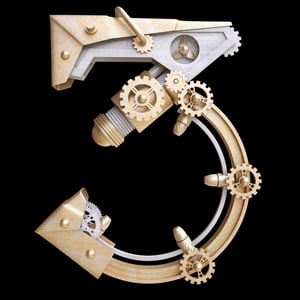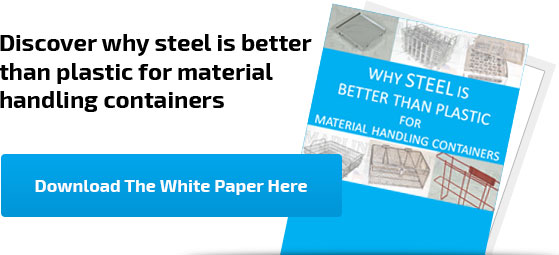 Manufacturers across the world have a need for specialized containers to hold their parts through different kinds of finishing processes, from simple wash cycles, to vapor degreasing, to heat treating, to ultrasonic cleaning and more.
Manufacturers across the world have a need for specialized containers to hold their parts through different kinds of finishing processes, from simple wash cycles, to vapor degreasing, to heat treating, to ultrasonic cleaning and more.
The goal with many of these finishing processes is to remove surface contaminants without damaging them. Any containers used need to:
- Be durable enough to take repeated exposure to a process without failing;
- Hold parts in a way that prevents damage; and
- Facilitate fast processing of parts.
Manufacturering companies use all kinds of containers to try and meet these goals. Stainless steel wire baskets rank among the best baskets you can get for durability in a wide variety of processes, being much stronger and lasting many times longer than plastic polymer baskets.
Given how useful they can be, here are three things you should know about stainless steel wire baskets:
1: They Can Have a Lower Total Cost of Ownership than Plastic Baskets
It’s true that stainless steel will cost more up front than plastic for making baskets. However, when you consider the useful life of the basket and ability to withstand a variety of processes, the total cost of ownership for a stainless steel basket can be much lower than a plastic one.
For example, say that a plastic parts washing basket could be used for about 1-2 years in your parts finishing process before becoming too worn out to hold parts. On the other hand, a stainless steel basket could survive the same process for over a decade of use. Over the course of ten years, you’d have to replace each plastic basket up to ten times, while the stainless steel baskets wouldn’t need to be replaced at all.
Also, many manufacturers use more than one type of parts finishing process. A custom steel basket can be designed to withstand the stresses of processes that would greatly exceed the capacities of even the toughest polymers. This allows the stainless steel basket to be used for multiple processes, saving time and labor that would otherwise be spent switching between different special-purpose baskets.
This helps to reduce the overall cost of ownership for the steel wire baskets compared to the plastic baskets.
2: There are Many Different Stainless Steel Alloys Available
While grade 304 and grade 316 stainless steel are the most commonly-used and widely-available stainless steel alloys on the market, there are dozens of other alloys available. Each alloy represents a slightly different mix of materials to produce different results.
For example, alloys with higher carbon content tend to have a higher hardness than alloys with less carbon. Different grades of steel will use varying percentages of chromium, nickel, and other materials in their structure to enhance corrosion resistance, preserve a specific molecular structure, or prevent/create magnetic properties.
When choosing a stainless steel basket for your parts finishing process, it’s important to consider the properties of the specific alloy in relation to your process. Here, consulting with a mechanical or materials engineer can be helpful.
3: There are Unique Challenges in Working with Stainless Steel vs. Plain Steel for Wire Baskets
Some might assume that any company that works with regular steel can create a stainless steel form just as easily. However, this isn’t the case. There are several challenges in working with stainless steel that can ruin the quality of a metal form when made by someone who is inexperienced.
For example, companies that normally work with plain steel need to make sure that any electric welding heads and other processing equipment they use are thoroughly milled prior to using them on stainless steel. Otherwise, the plain steel fragments and particles embedded into them can corrupt the stainless work piece, ruining the protective oxide layer and causing corrosion.
Also, different stainless alloys will have different reactions to both electric and acetylene welding processes, which can affect the integrity of a completed weld.
When sourcing a stainless steel wire basket, it’s important to make sure that the manufacturer has extensive experience in working with stainless steel, or even specializes in stainless over plain steel.
For example, most of Marlin’s work is in stainless steel alloys (~80% of all work).
These are just three things that every manufacturer should know about stainless steel wire baskets. For more information, check out some of our other resources on stainless steel.



.gif)


